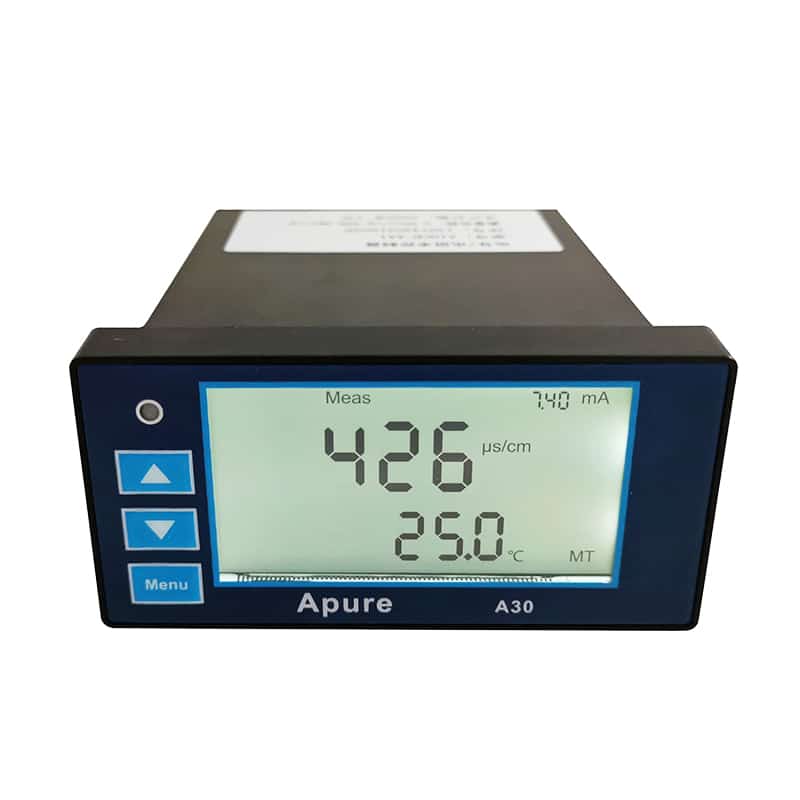What is ec meter?
EC meter is a basic type of simple instrument used to quickly and accurately determine nutrient content in solution. A wide variety of designs suitable for many important agricultural, environmental management and commercial applications.

What is ec?
EC stands for Elecrical Conductivity (often abbreviated as Conductivity). Electrical conductivity is a measure of the concentration of ions present in a sample. It is calculated by the ability of a substance to carry an electric current in a defined region.
Distilled water is a poor conductor of electricity – it does not contain ions. Water containing salts and other dissolved inorganic chemicals will have a higher concentration of ions and therefore a higher level of conductivity.
Why measure ec?
Conductivity is a valuable and commonly used parameter for water quality. By the way, Siemens (S) (i.e. milliSiemens per centimeter mS/cm or microSiemens per centimeter μS/cm) is the unit used when measuring conductivity.
It is important to know that there is a strong correlation between conductivity, TDS and salinity. And because conductivity is easier to measure than TDS and salinity, many devices first determine the conductivity of the sample and then use algorithms to estimate salinity and TDS concentrations.
EC meter applications
- Planting and grazing areas: Conductivity measurements can indicate the salinity, dissolved nutrients and dissolved solids levels present in the soil. This information can help you make the right decisions regarding irrigation and fertilizer application.
- Aquariums and aquaculture: Conductivity meters can directly monitor water salinity and total dissolved solids levels. You can manually convert conductivity readings to total dissolved solids (TDS) or salinity concentrations, or use a conductivity meter with this feature built in. These readings can then be used to maintain a healthy environment for your cultured species.
- Water Treatment: Conductivity data is playing an increasingly important role in managing environmental water quality. Keeping conductivity and salinity measurements within acceptable limits is key to maintaining healthy and sustainable ecosystems in oceans and waterways, especially where wastewater is discharged.
- Boiler Maintenance: The feed water in boilers contains impurities and these can eventually cause problems. Any build-up of contaminants can affect the efficiency and safety of the boiler. Conductivity meters enable you to monitor the level of impurities in boiler water and warn of the possibility of boiler drainage.
- Salt pool maintenance: Conductivity meters can help you check the chemical balance of your pool or spa. A conductivity meter (with automatic salt conversion or manual conversion of conductivity results) will indicate when to implement corrective actions to ensure pool water safety.
EC meter product

Model: A30CD
Suitable applications: Swimming pools, hydroponics and water treatment
Measuring range: 0.05us/cm – 200ms/cm; 0.00 MΩ·cm~20.00 MΩ·cm
Accuracy: 1%FS
More articles on water quality:
Difference between conductivity(EC) and TDS
How does ph conductivity meter work?
What is pH sensor & How does it work?
What is a pressure transmitter?
